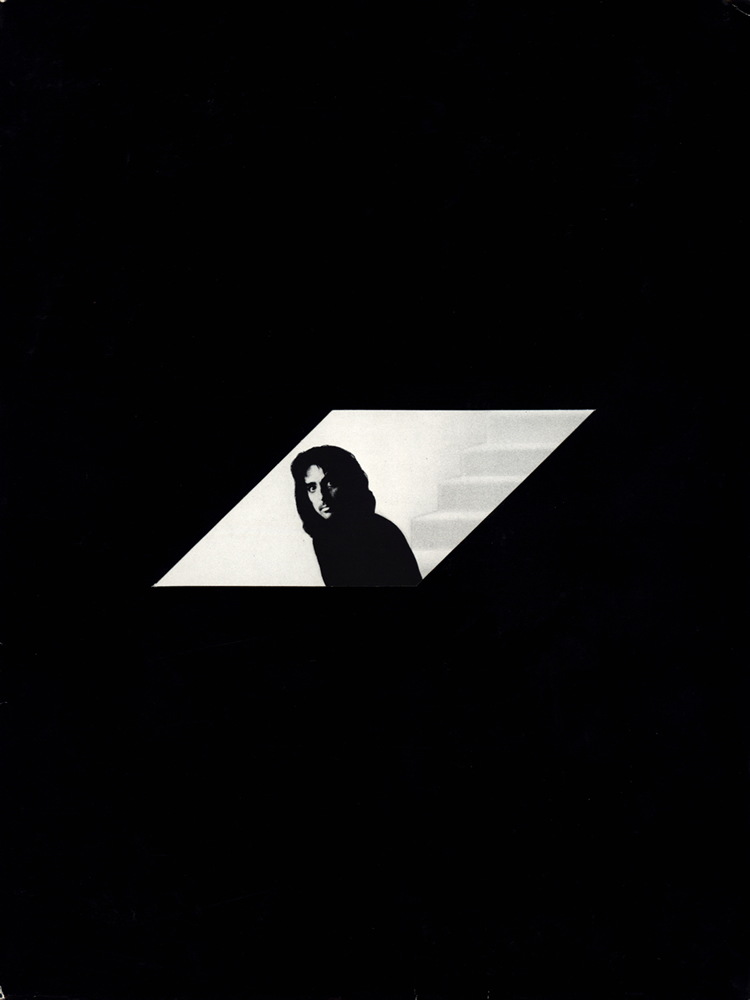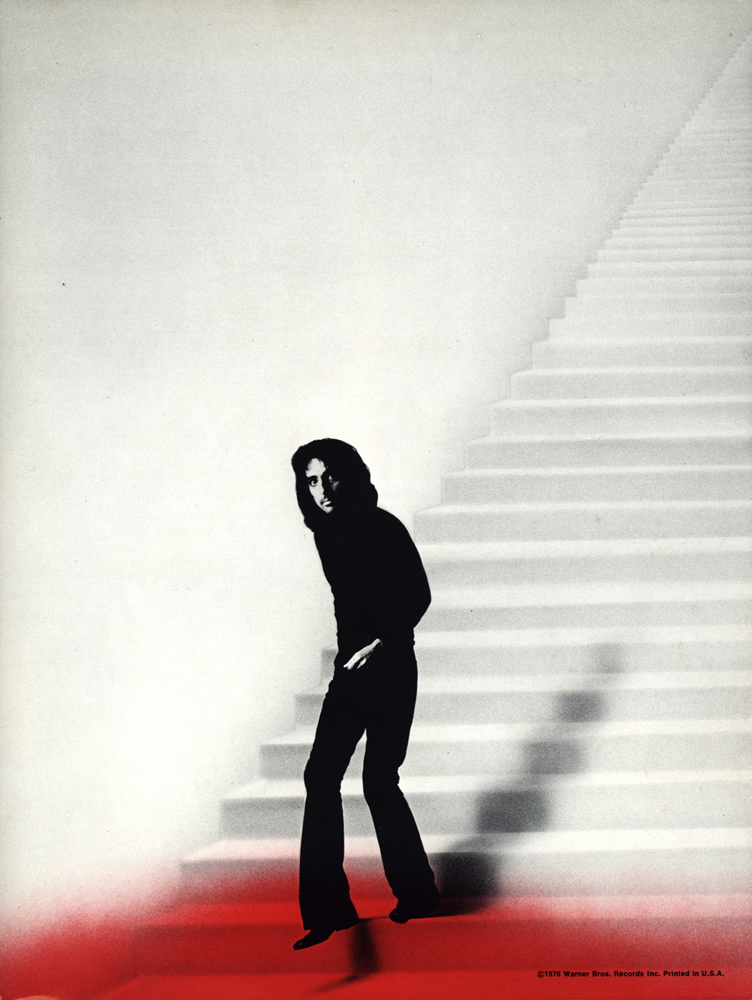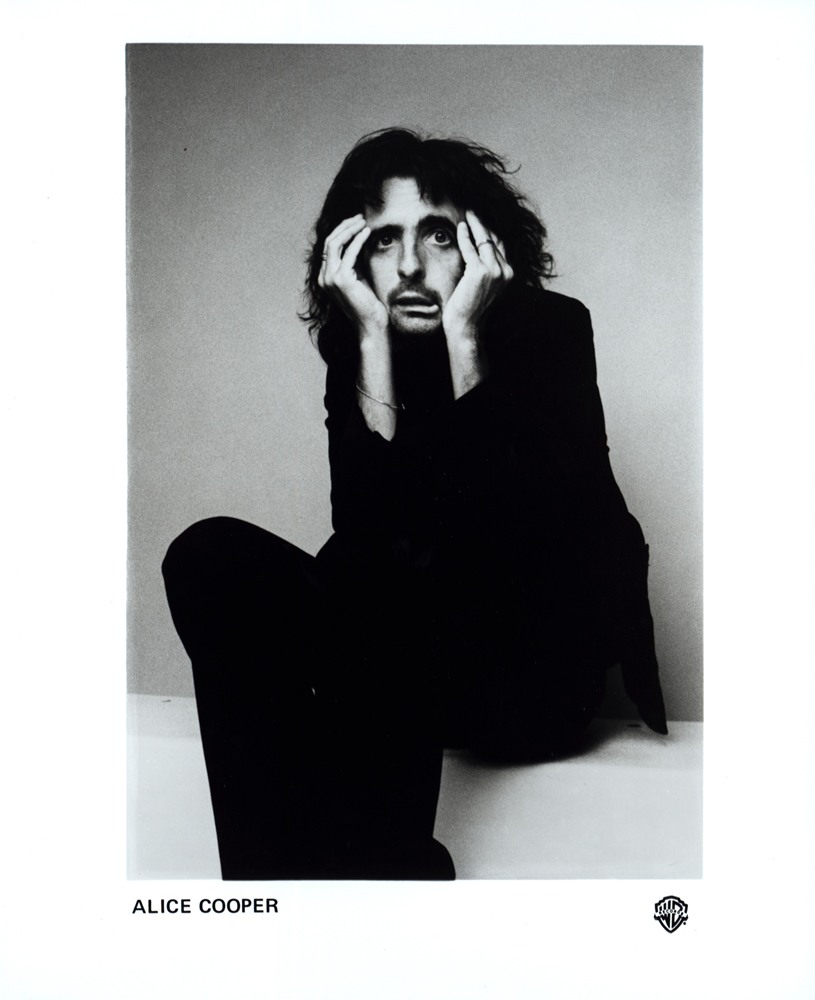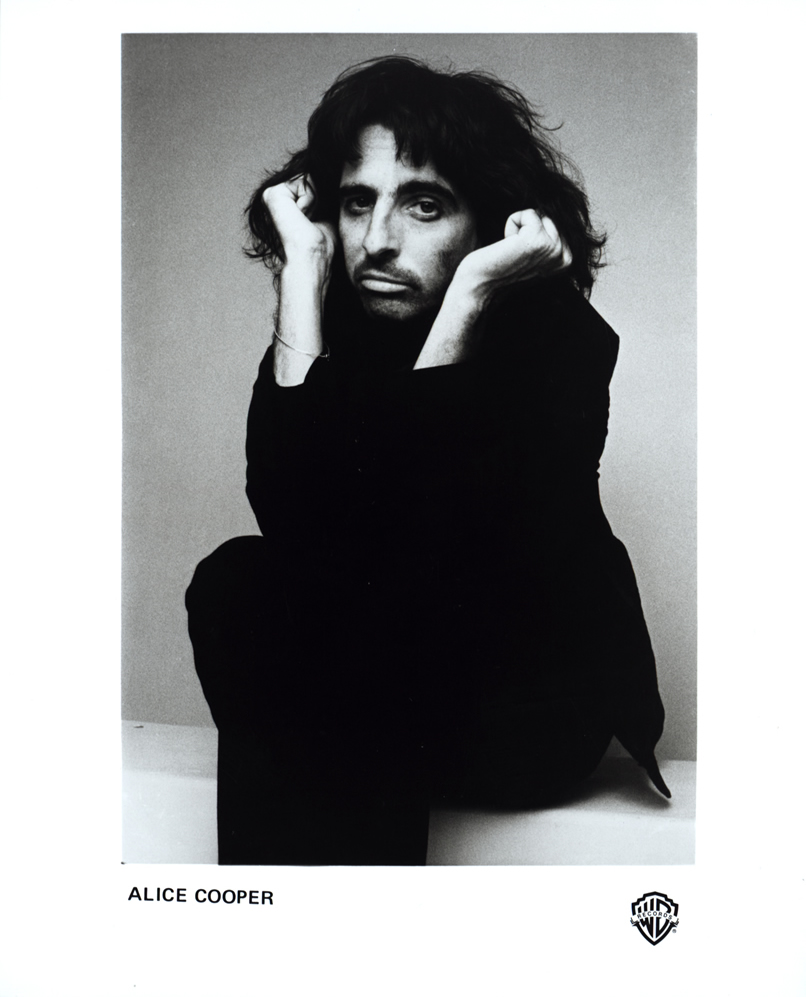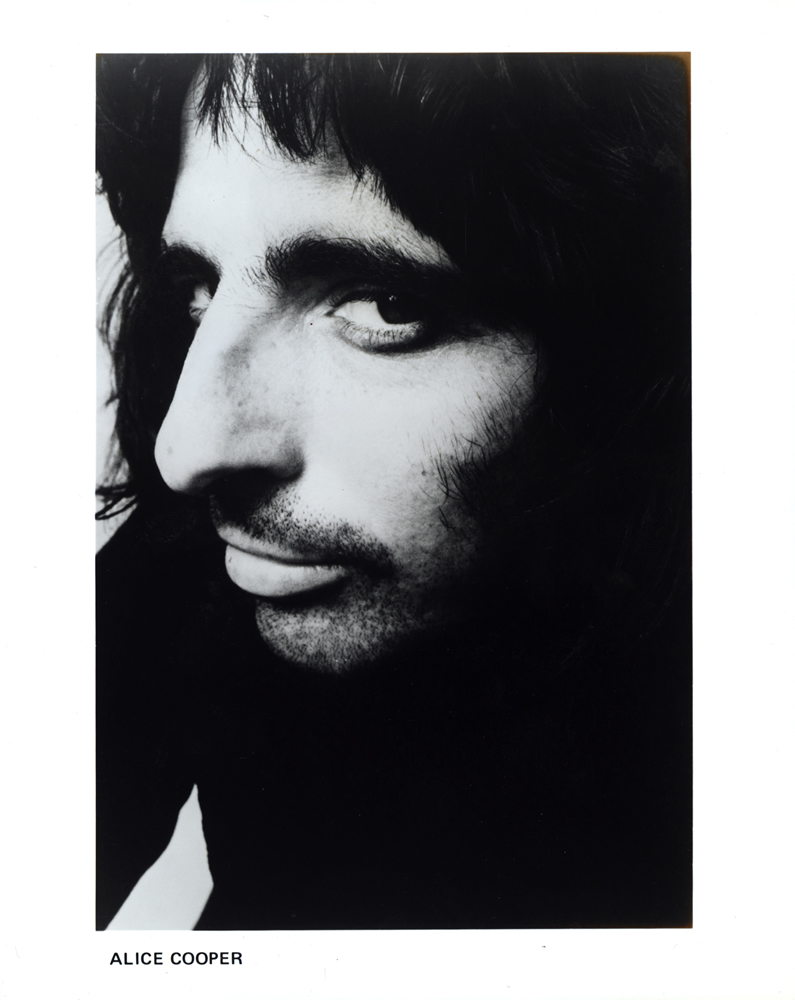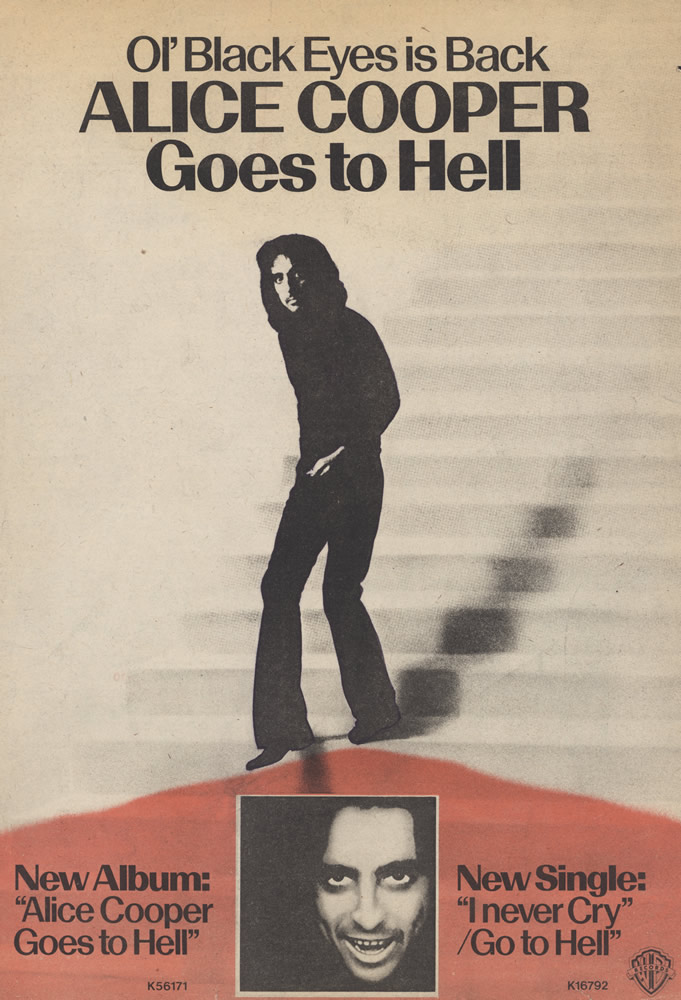Album Guide
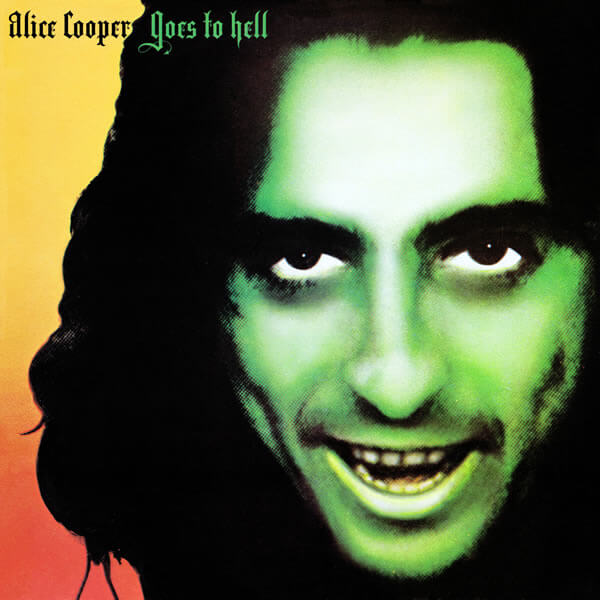
Alice Cooper Goes to Hell (1976)
Track listing: Go To Hell / You Gotta Dance / I'm the Coolest / Didn't We Meet / I Never Cry / Give the Kid a Break / Guilty / Wake Me Gently / Wish You Were Here / I'm Always Chasing Rainbows / Going Home
Alice Cooper: vocals
Allan Schwartzberg and Jim Gordon: drums
Steve Hunter and John Tropea: guitars
Tony Levin, Babbit: bass
Dick Wagner: guitars and vocals
Jim Maelen: percussion and soft shoe
Bob Ezrin: keyboards and vocals
Al MacMillan: piano
Shawn Jackson, Denny Dosbugh, Colina Phillips, Shep Gordon, Sharon-Lee Williams, and Michael Sherman: vocals
Joe Gannon: vocals and tri-city credit
Produced by Bob Ezrin
Recorded at Soundstage, Toronto; Record Plant East, New York; RCA Recording Studios, Los Angeles
Alice Cooper Goes to Hell (1976)
Lay still, Steven, and I'll tell you a bedtime story. I'll tell you a bedtime story that's not for all children. It's a very special story, that only special children will understand. It's a half-awake story, and it will be better if you close your eyes. It's a story that takes place in a dream, like other nightmares you have known. It's a dream that Alice has dreamed. You can dream along with him. You can follow Alice down the staircase, deep, down the stairs to the pit where he doesn't want to go, but he has to.
If you go to sleep now, Steven, you can go down the long and endless staircase and sing sweet songs to Alice and free him. And if you can't get to sleep, Steven, and in the middle of the night you get out of bed, when everything is quiet and the trees are still and the birds are hiding from the dark, you can lay down on your bedroom floor and press your ear tightly to the boards. If you listen very carefully you can hear Alice searching for a way out, forever chasing rainbows.
Sleep tight, Steven. And have a good night.
PRESS RELEASE:
Alice Cooper Goes to Hell is the latest album in the continuing adventures of the master of merriment and mayhem. In a descent to a netherworld unlike any ever imagined, Alice Cooper Goes to Hell is both an entertaining vision from Cooper's theatrical mind and his finest musical achievement to date.
In Alice Cooper Goes to Hell, for all his sins, real or imagined, the inimitable Cooper descends the steps of absurdity to a ninth circle with a never-ending twist; for the hard rocking Cooper hell is a discotheque, the devil a disc jockey, and the punishment to be doomed to dance for an eternity. In a unique mixture of "They Shoot Horses, Don't They?," Edgar Allan Poe and Alice's special brand of insanity, Cooper turns Purgatory into a funny and compelling setting.
The 'dish 'em out, get 'em while they're hot system of album-making is long gone for Cooper. Accomplishment has afforded him the time to carefully design an album, write the lyrics and find the best musicians for each particular job. Alice spent six months writing the lyrics for Alice Cooper Goes to Hell, a task he has done before in weeks or even hours. He came up with over 50 songs, pared them down to 20 and then to the eventual 10 originals that appear on this album. (Alice's version of "I'm Always Chasing Rainbows" was, of course, penned by McCarthy and Caroll)
The ten Cooper songs were co-written with guitarist Dick Wagner and master producer Bob Ezrin. Wagner, whose rock resume as a brilliant guitarist and composer extends to Lou Reed (Berlin), Ursa Major and Frost, also wrote many of the tunes for Alice's Welcome to My Nightmare album, including the critically acclaimed hit single, "Only Women." Bob Ezrin has worked with Alice for seven years (since "Eighteen") and is responsible for the production on Alice's best singles and albums, which include four platinum, seven gold discs and record sales totaling over 40 million worldwide.
"We decided that the more seriously we took the music, the more seriously others would listen to it," Alice explains about Goes to Hell. "I think because we took so much time and care on the album, and used the musicians we did, we came up with the best rock and roll tracks I've heard on a record in seven or eight years. And I'm pleased with the vocals, which I know are the best I've ever done."
Such stubborn perfectionists were Cooper, Ezrin and Wagner, that· they transported musicians, engineers and studios half a dozen times in the course of recording, either to go somewhere to utilize an immovable session man (John Tropea was a must for the disco cuts and couldn't leave New York because of a prior commitment to Laura Nyro) or because the weather had turned bad in Toronto and Alice wanted everybody healthy and happy for recording.
Known collectively as the Hollywood Vampires, the assembled talent is staggering. It includes Jim Gordon and Allen Schwartzburg on drums, Steve Hunter, Dick Wagner and John Tropea on guitars, Tony Levin on bass, Al Macmillan and Bob Ezrin on keyboards, along with vocalists ranging from Sahen, Colina Phillips, Laurel Ward and Sharon-Lee Williams to Joe Gannon, Denny Vosburgh and Shep Gordon. Recording took place at various studios including the Soundstage, Toronto, the Record Plant East, New York, and the RCA Recording Studios, Los Angeles. Total production costs near $100,000.
Alice Cooper was born under mysterious circumstances in Detroit, 1948. His family moved to Phoenix when he was 11 where Alice proceeded to grow into an archetypical teenager; track star, school clown and journalist. In his senior year at Cortez High School he appeared in a Beatle wig with a guitar in hand for a skit in the school cafeteria. The skit was a joke but it laid the foundation for a philosophy that eventually made Alice the most popular and unconventional entertainer of the 1970's.
At the age of 18 Alice and his band began periodic trips to Los Angeles while he attended college in Phoenix. Eventually the lure of the tinsel town on the Pacific took him away from school and made the Cooper group full-time Los Angeles citizens. Alice lived there for two years, sleeping in a coffin, living in motels and mansions, dressed in bizarre clothing and make-up while other rockers were still in grade-school.
It wasn't until years later, after Alice had moved to Detroit, that he met Bob Ezrin and recorded his first hit, "Eighteen." The rest is a history that's been told in three books (in- eluding Alice's fascinating "Me, Alice" autobiography) and over 50 million words in newspapers and magazines around the globe.
Once again, take a trip with Alice. Join along as Alice Cooper Goes to Hell.



